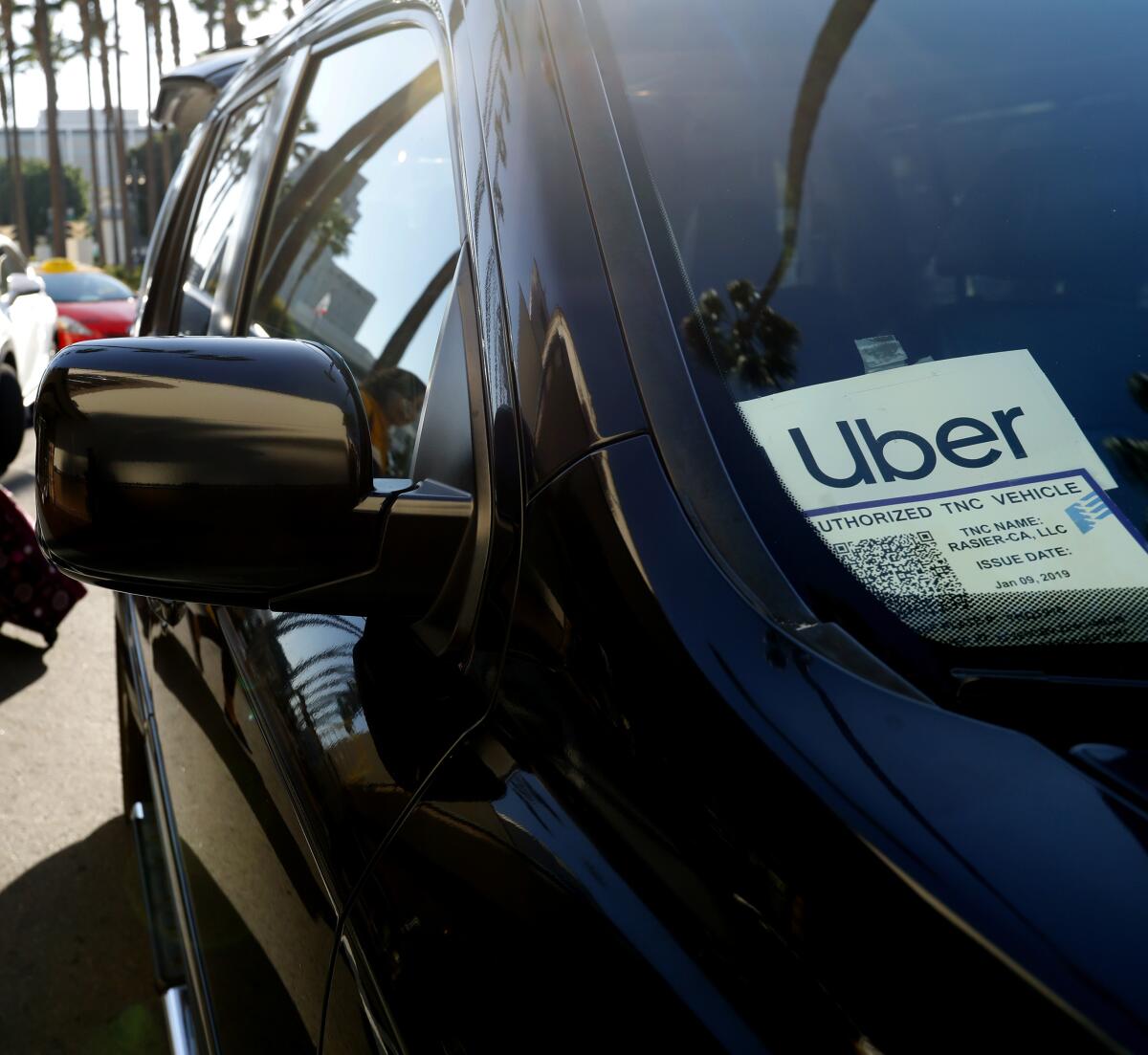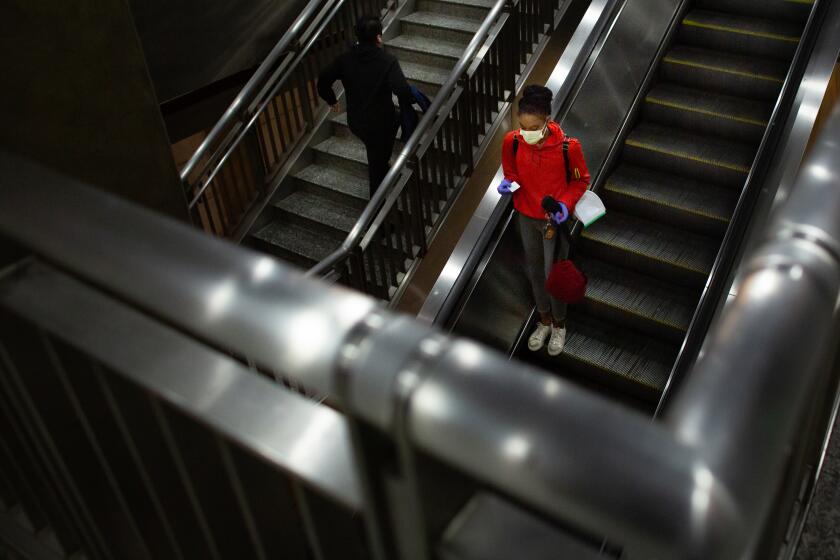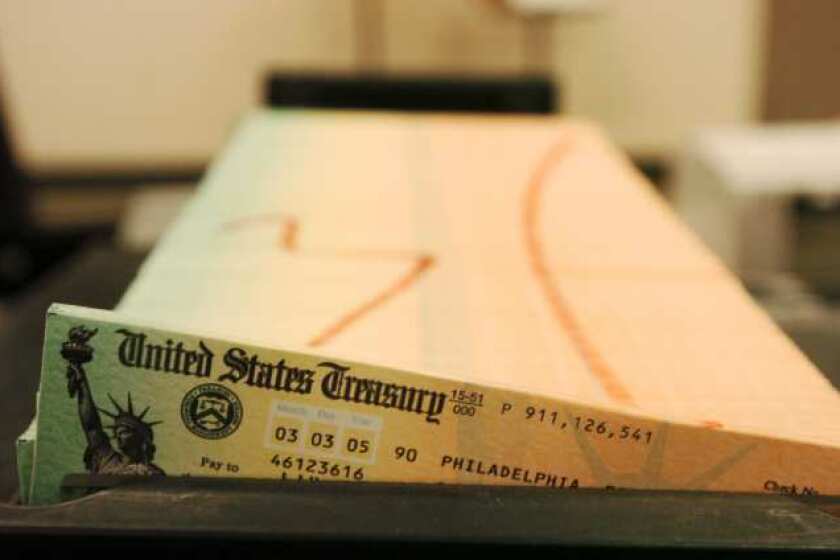Aid to unemployed freelancers lags as California officials await federal guidance

- Share via
A new federal law gives freelancers desperately needed unemployment insurance coverage in the wake of the coronavirus pandemic. But California employment officials have yet to implement the new rules because they’re awaiting federal guidance.
That means that for now there is no way for freelancers to apply for assistance unless they claim they were “misclassified” employees or had voluntarily paid into the Unemployment Insurance Program individually or through an employer, none of which is required under the new federal law.
The need for coverage is particularly acute in California, a hotbed for contract and other “gig economy” employment that was among the first states to shut down much of its economy to stem the spread of the disease.
New coronavirus laws provide a litany of benefits to the self-employed, freelancers and workers in the gig economy.
Officials at the California Employment Development Department, which administers the state’s unemployment insurance program, said they were awaiting federal guidance on the new Pandemic Unemployment Assistance program, which passed Congress and was signed by President Trump on March 27.
The law covers furloughed and fired employees, as well as independent contractors, freelancers and self-employed individuals, who normally wouldn’t qualify for unemployment benefits.
“As part of the federal CARES Act, the federal government has approved funding for additional UI benefits to workers impacted by COVID 19, including the self-employed,” department spokesman Barry C. White said in an email. “The EDD has received only overarching information from the U.S. Department of Labor but needs further details to finish building the programming for implementing these changes.”
The U.S. Department of Labor, however, pointed to detailed guidance given to the states last week.
Freelancers who have attempted to file unemployment claims in California since the passage of the CARES Act have expressed confusion. The current state forms require wage information from W-2 forms, which are provided only to employees, not freelancers.
Joseph Bartlett, a self-employed attorney from Santa Monica, said he filled out the unemployment application but was unable to plug in any income information.
“The only income information that they asked for was for W-2 information. I haven’t received a W-2 in 25 years,” he said. “Hopefully, they will send me some sort of acknowledgment and allow me to modify the application.”
In other states, labor officials are already implementing the federal law.
New York, for instance, has detailed information about the new unemployment assistance program on its website. Freelancers can use the state’s “Pandemic Unemployment Assistance” checklist to see they qualify. The agency also has a separate section providing application guidance to the self-employed.
Like other states swamped with applications for unemployment assistance coverage during the coronavirus lock-down, New York’s Labor Department is asking for patience from applicants. New applicants are asked to apply for benefits alphabetically to reduce some strain on the system. (People with last names starting with A-F apply on Mondays; G-N, Tuesdays, and so on.)
However, the New York Department of Labor assures its residents that even if there’s a delay, they will receive benefits backdated to the date they became unemployed.
The short version: All U.S. residents are eligible for the coronavirus stimulus payments as long as they have a work-eligible Social Security number and meet the income requirements.
Californians have been given no such assurance. By Monday afternoon, the state’s unemployment benefits website included a coronavirus 2019 information page. However, it repeated that is was waiting for guidance before implementing the CARES Act.
Notably, California was one of the first states to issue a stay-at-home order on March 19. That order effectively closed nonessential businesses and sent hourly and part-time workers packing, often without pay. Three weeks later, millions of Californians left jobless have been struggling to pay for groceries and rent, while they wait for promised aid.
Several federal laws have passed in recent weeks to provide paid time off, $1,200 stimulus checks, and unemployment coverage for people otherwise barred from staking a claim to the nation’s primary safety net for displaced workers. By far, the most significant piece of this aid is unemployment coverage.
Unlike the one-time stimulus checks and the sick leave, which would provide up to two weeks of pay, the Pandemic Unemployment Assistance program,could provide up to $4,200 in monthly help to out-of-work Californians. That aid would last for up to 39 weeks.
However, unemployment benefits are administered through a federal-state partnership. While the federal government provides some rules, states are given freedom to set their own limitations and administer the programs.
When asked for an estimate on when the state would update its website and implement the CARES ACT, the California Employment Development Department failed to respond.
The agency’s website simply says that the agency is “working quickly” as it awaits final guidance from the federal government, adding: “It takes at least three weeks to process a claim for unemployment benefits and issue payment to most eligible workers. We appreciate your patience.”
Calls and emails to Gov. Gavin Newsom’s office were not immediately returned.
Kristof is the editor of SideHusl.com, an independent website that reviews money-making opportunities in the gig economy.
More to Read
Inside the business of entertainment
The Wide Shot brings you news, analysis and insights on everything from streaming wars to production — and what it all means for the future.
You may occasionally receive promotional content from the Los Angeles Times.












